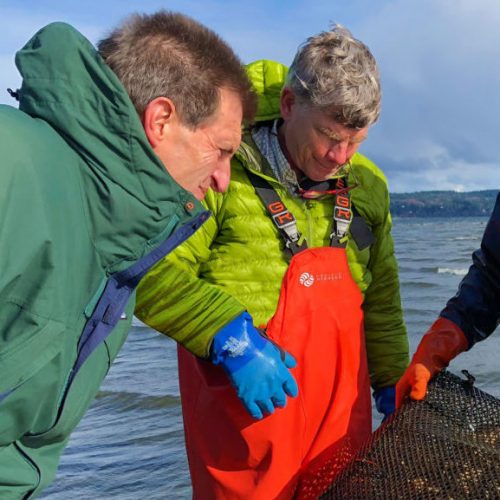
The Pacific Hybreed team is proud to announce project funding secured through the Small Business Innovation Research (SBIR) grant from the United States Department of Agriculture (USDA). The SBIR program awards competitive grants to support high-quality research related to significant agricultural problems and opportunities, with the potential for substantial public benefits.
The project aims to boost the production of Pacific Oysters through crossbreeding. Crossbreeding has greatly improved crop yields on land, and the methodology is being used to develop hybrid oysters, with a focus on the Pacific oyster, the most commonly farmed shellfish species on the U.S. West Coast. Hybridization has demonstrated much higher yields, and this project will result in unique hybrid lines specifically designed to thrive in various geographic areas and ocean conditions, both now and in the future. Multiple genetic lines will be field-tested in various locations to identify the correlation between specific genetics, higher performance, and environmental conditions.
Oyster farming has been a vital source of social and economic benefits in coastal communities for generations. More recently, there has been increasing recognition of the environmental value of oyster farming. Farmed oysters require minimal energy and feed, and they filter large volumes of water while removing carbon and nutrients from the sea during harvest.
However, growers are facing significant threats from environmental change and stressors, many of which are directly or indirectly linked to climate change. These environmental stressors could lead to significant reductions in shellfish yields in the future. Breeding programs have the potential to improve oyster yields, especially in regions like the U.S. West Coast, where growers rely on hatchery-produced seed.
The Pacific Hybreed staff is collaborating with industry partners for weekly field testing and performance evaluation. Stay tuned for updates.
